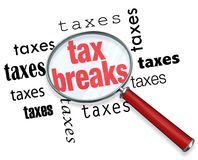Introduction
As a landlord, navigating the complex world of real estate investments requires careful consideration of various factors, including tax implications. Understanding the available tax breaks for landlords can significantly impact your financial gains and help you make informed decisions. In this article, we will explore the importance of tax breaks for landlords, their benefits, and strategies to maximize their utilization.
The Significance of Tax Breaks for Landlords
Tax breaks for landlords play a vital role in providing financial relief and incentives to property owners. They enable landlords to offset expenses, encourage property investment, and stimulate economic growth. By taking advantage of these tax breaks, landlords can enhance their profitability and ensure the sustainability of their real estate ventures.
Key Tax Breaks for Landlords
Mortgage Interest Deduction: Landlords can deduct the interest paid on their mortgage loans, reducing their taxable income. This deduction applies to both residential and commercial properties and is one of the most significant tax breaks available to landlords.
Depreciation
Landlords can depreciate the value of their property over time, considering it as a loss on their tax returns. This non-cash deduction allows landlords to account for wear and tear, increasing their tax benefits
Operating Expenses Deduction:
Ordinary and necessary expenses related to the operation and maintenance of rental properties, such as repairs, insurance, property management fees, and utilities, can be deducted by landlords.
Home Office Deduction:
If landlords have a dedicated space in their home used solely for rental activities, they may qualify for a home office deduction. This allows them to deduct a portion of their home-related expenses, such as mortgage interest, property taxes, and utilities.
Strategies to Maximize Tax Breaks for Landlords
Keep Detailed Records: Maintaining accurate records of all income and expenses related to your rental properties is crucial. These records will substantiate your deductions and help maximize tax breaks. Utilize digital tools or dedicated software to streamline the process and ensure comprehensive documentation.
Consult a Tax Professional:
The tax landscape can be intricate, and seeking guidance from a qualified tax professional specializing in real estate can provide invaluable insights. They can help identify additional tax breaks, ensure compliance, and optimize your tax strategy.
Utilize 1031 Exchanges
A 1031 exchange allows landlords to defer capital gains tax by reinvesting the proceeds from the sale of one property into another. By utilizing this provision, landlords can grow their real estate portfolio and postpone taxable events.
Explore Cost Segregation:
Cost segregation studies enable landlords to identify and accelerate depreciation on specific components of a property. This strategy can result in significant tax savings by categorizing certain assets as short-term or accelerated depreciation, reducing tax liability.
Frequently Asked Questions (FAQs) about tax breaks for landlords
Can tax breaks for landlords be claimed on both residential and commercial properties?
Yes, tax breaks for landlords apply to both residential and commercial properties. However, specific rules and limitations may vary based on the type of property and its use.
Are there any restrictions on claiming the mortgage interest deduction?
To claim the mortgage interest deduction, landlords must meet certain criteria, including itemizing deductions on their tax returns and using the property as collateral for the mortgage. Additionally, there may be limitations on the amount of mortgage debt eligible for the deduction.
Can landlords deduct expenses for renovations or improvements?
Expenses incurred for renovations or improvements that enhance the property’s value and extend its useful life are typically capitalized and cannot be immediately deducted. However, they can be depreciated over time.
Conclusion
Understanding and leveraging tax breaks for landlords is crucial for maximizing financial benefits and optimizing real estate investments. By taking advantage of key tax breaks such as mortgage interest deduction, depreciation, and operating expenses deduction, landlords can reduce their taxable income and enhance profitability. Additionally, employing strategies like keeping detailed records, consulting tax professionals, utilizing 1031 exchanges, and exploring cost segregation can further maximize tax benefits. Stay informed, utilize available resources, and make informed decisions to make the most of tax breaks for landlords in your real estate journey.







